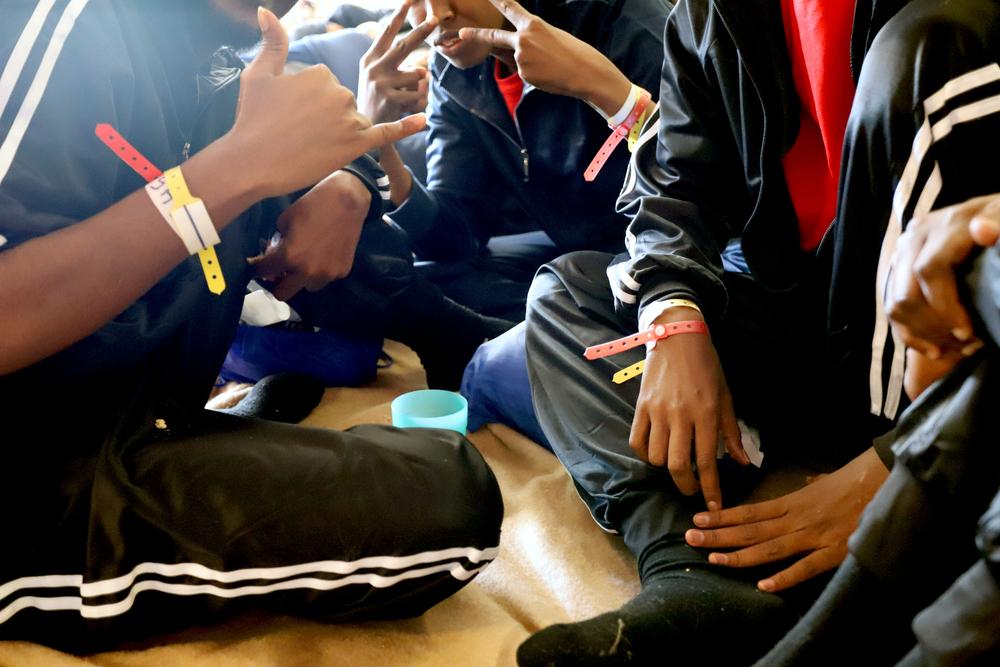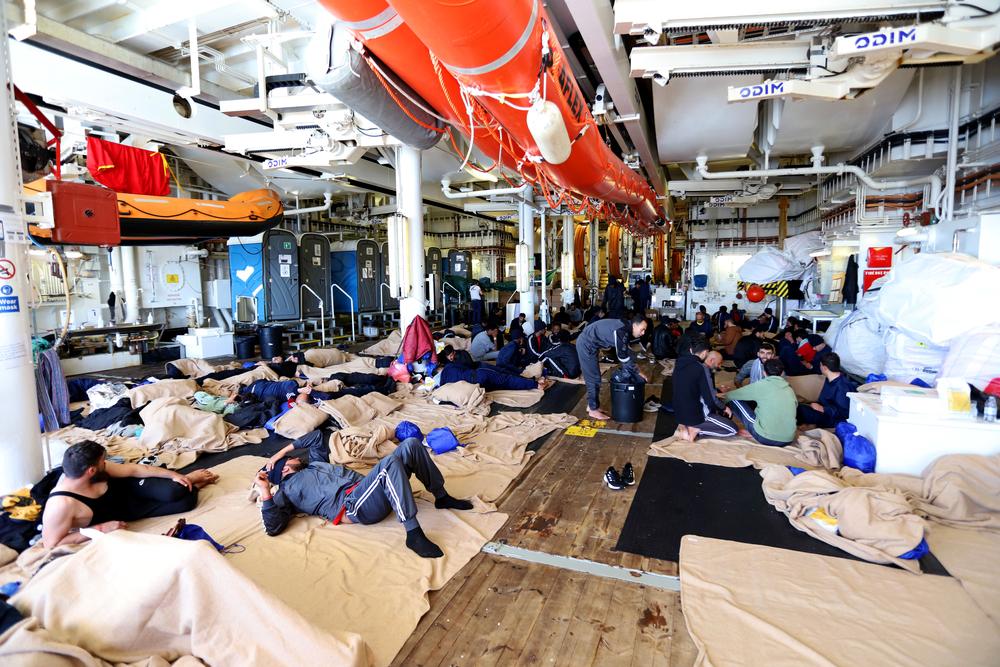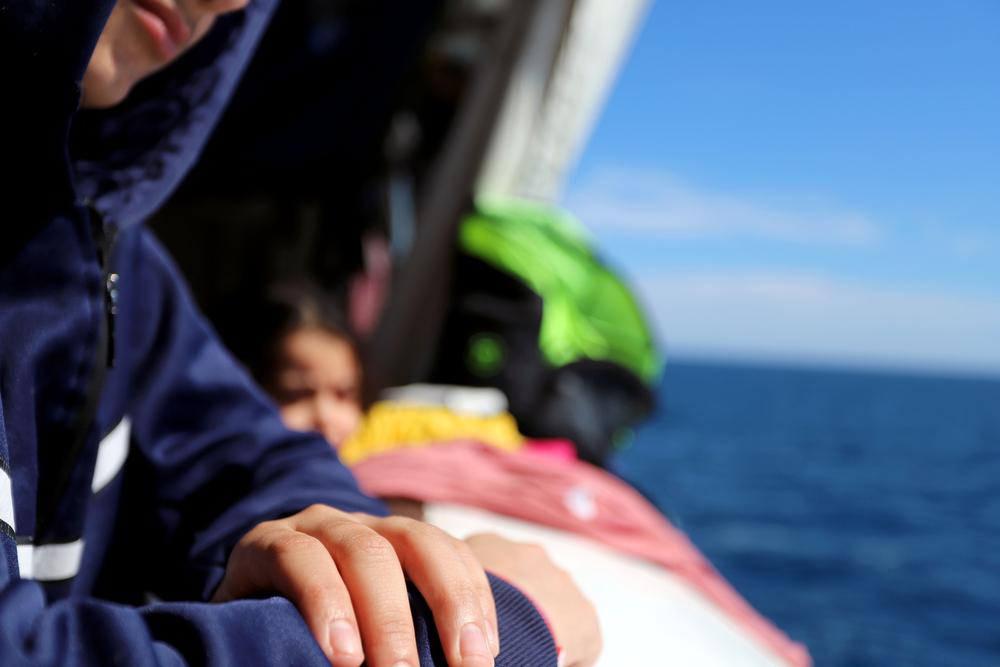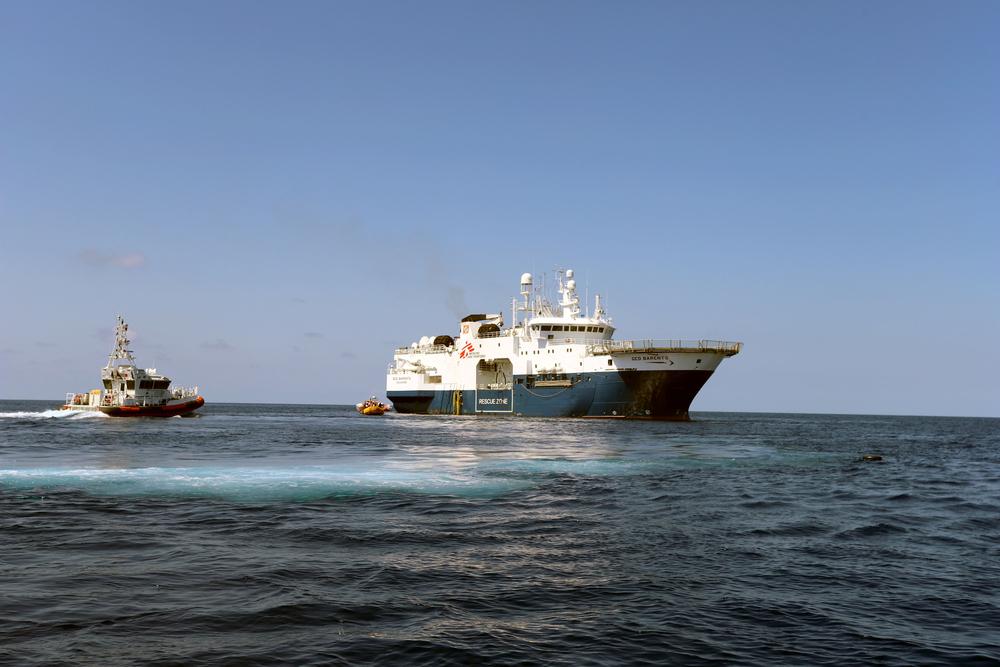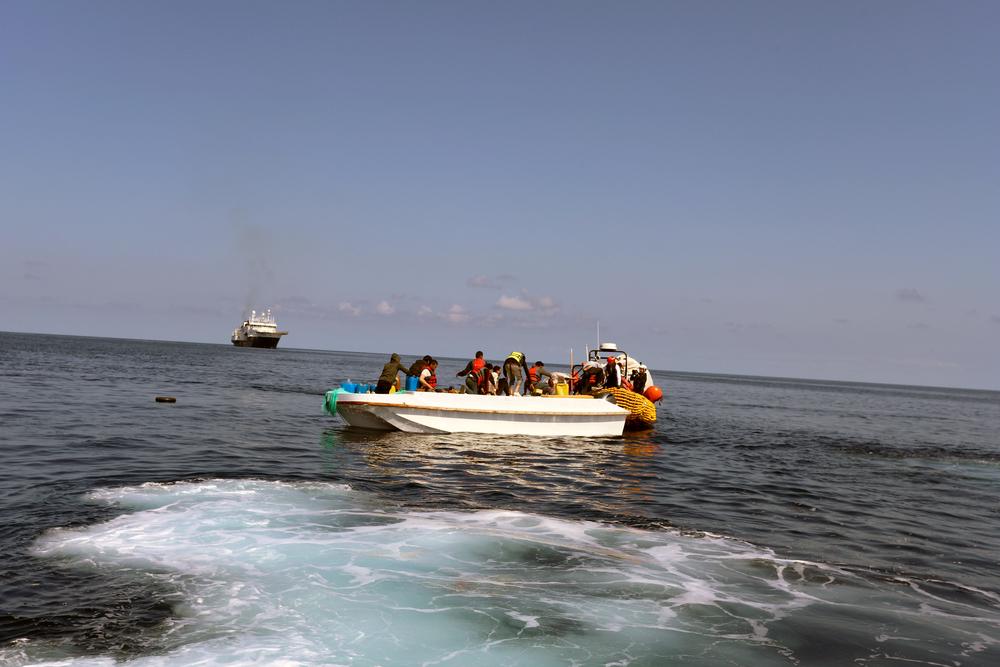
EU-sponsored shameful abuses in the Central Mediterranean must end
In 1 click, help us spread this information :
Over the weekend of March 16-17, the Médecins Sans Frontières (MSF) team on board the rescue vessel Geo Barents witnessed two violent incidents involving the European Union (EU) funded Libyan Coast Guard that deliberately endangered the lives of hundreds of people seeking safety. MSF calls on the EU and its member states to immediately suspend financial and material support to the Libyan Coast Guard and stop fuelling intentionally the forced returns of people to Libya.
Blinded by the sole objective of preventing arrivals on European shores, the EU and its member states are actively supporting violent pushbacks and perpetuating well-known heinous treatment and abuses against migrants and refugees in Libya,” says Juan Matias Gil, MSF SAR representative.
On Friday 15 March 2024, the MSF team witnessed a pushback by the EU-funded Libyan Coast Guard. This happened in the international waters, clearly outside the Libyan Coast Guard area of responsibility, in the Maltese search and rescue (SAR) region. Despite MSF’s offer to provide assistance and bring the people to a place of safety, Maltese authorities and Frontex coordinated with a Libyan Coast Guard patrol vessel – donated by Italy, to intercept and forcibly return over 100 people to Libya.
The following day, on Saturday 16 March 2024, another Libyan Coast Guard patrol vessel, also donated by the Italian government[1], aggressively obstructed MSF rescue operations for over two hours, putting at risk the lives of 146 people in distress on a wooden boat in the international waters. MSF had already started to transfer people onto Geo Barents when the Libyan Coast Guard attempted to stop the rescue and forcibly board one of the MSF rescue boats, while directly threatening MSF staff with reprisals, as well as to take everyone to Libya.
Meanwhile, another distressed fiberglass boat with 75 people on board was adrift some 50 nautical miles away, severely taking on water. Despite the Libyan authorities being alerted about the situation around midday and repeatedly saying that a patrol vessel was on its way, ten hours passed without any rescue operations being launched by the Libyan Coast Guard.
“When we arrived on the scene, the situation was critical. The boat was already sinking. People were terrified,” says Virginia Mielgo, MSF project coordinator on board Geo Barents. “Then, the boat capsized and about 45 people fell into the water. Fortunately, we had already distributed lifejackets to everyone and evacuated the children, some aged less than three years old.
It was just a matter of minutes before the situation could have taken a tragic turn.”
The events over the weekend are another clear demonstration of the lack of search and rescue capacity in the Central Mediterranean and ultimately the complete disregard for human lives by the EU and its member states.
Since 2017, the EU and Italy have spent at least 59 million euros supplying and training the Libyan Coast Guard to stop arrivals to Europe. Instead of investing in proactive search and rescue capacity or coordinating with NGO rescue vessels to bring people to a place of safety, the EU has deliberately chosen to facilitate the forced return of people to Libya, where they face physical and sexual violence, forced labour and extortion.
How long will the EU leaders continue to actively fuel horrific human right abuses at its borders?” says Gil.
“Not only must the EU and its member states immediately stop all support to the Libyan Coast Guard, but it must also investigate the responsibility of their coastal states, in this case Malta, and its border agency, Frontex, in the unlawful pushbacks occurring almost daily in the Central Mediterranean Sea, thereby making them complicit in grave human rights violations.”
